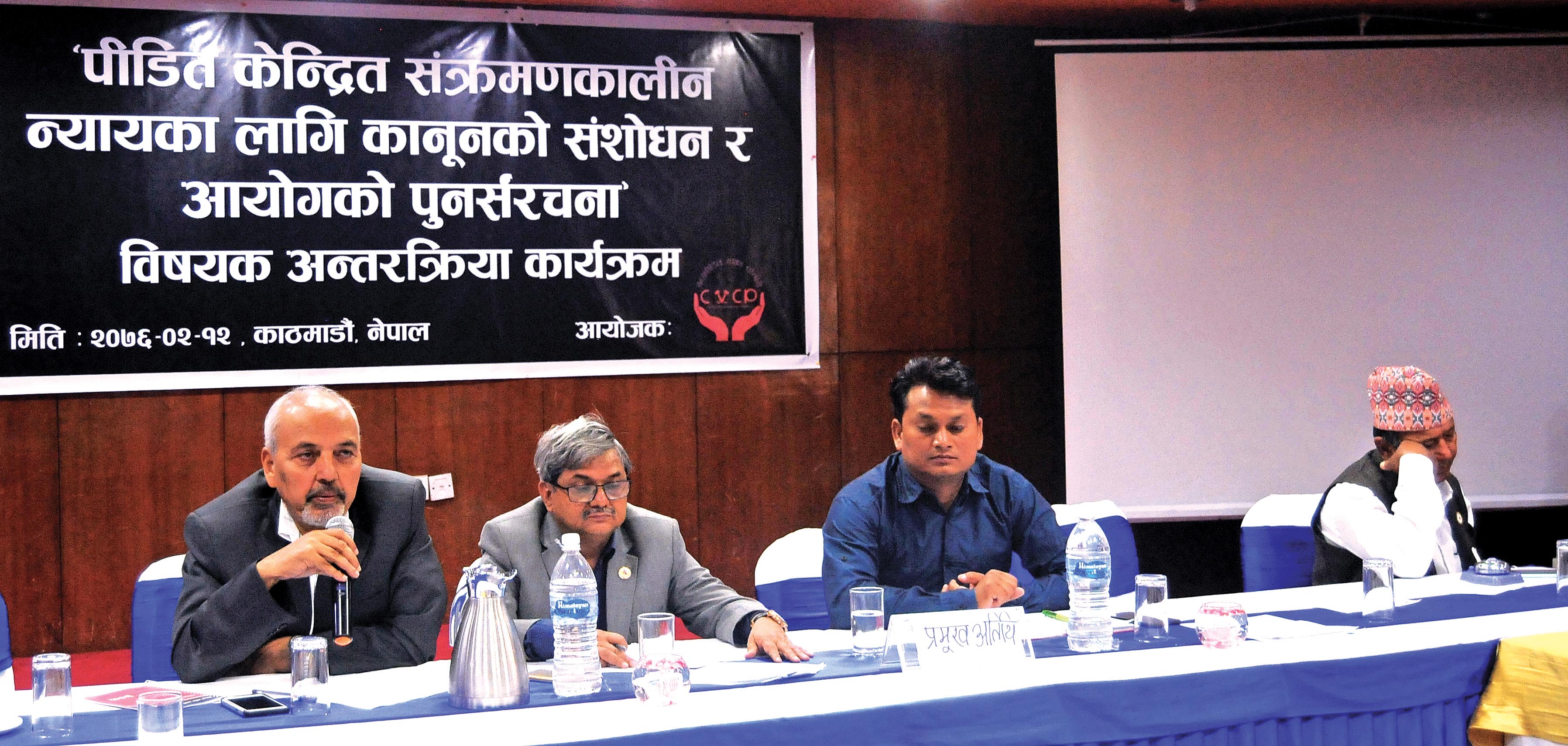Selection panel to publish names within 10 days
Kathmandu, August 9
The committee formed to recommend commissioners of two transitional justice bodies plans to publish names of prospective candidates in the next 10 days.
The committee has so far collected 57 applications for the posts of chairpersons and members of Truth and Reconciliation Commission and Commission on Investigation of Enforced Disappeared Persons. However, the committee also plans to add a few more names to the list as none of the 57 applicants meet the criteria for chairpersons.
The selection process endorsed by the committee has provisioned that panel can list any eligible person’s name even if the person has not filed application or is not recommended by any person or institution within the set deadline, considering the person’s special qualification.
The committee has almost finalised the criteria for listing individuals who have not applied for the posts themselves. “We will finalise the criteria in the next few days, and publish a list in the next eight to ten days,” said the committee’s member Prakash Osti.
As it prepares for publishing names of prospective candidates, the committee today held a meeting with stakeholders of the 10-year Maoist insurgency, including representatives of victims’ organisations, police and army.
During the talks, the victims put forth their long-standing demand that Transitional Justice Act be amended in line with the Supreme Court’s verdicts before appointing TRC, CIEDP commissioners, according to Suman Adhikari, former chairperson of Conflict Victims’ Common Platform.
“The commissions have failed so far because of poor legislation. Appointing new members in the commissions without amending the act is meaningless,” Adhikari said.
The victims also advised the selection committee to appoint competent candidates in the commission without buckling under political pressure.
“We also demanded that the selection criteria be made public so that we could give our inputs as stakeholders,” he said.
The committee members said act amendment was beyond their mandate, but they would cooperate with the victims to pressure the government for the same.
Today’s meeting comes against the backdrop of demands for dissolution of the selection committee. The victims have criticised the committee for being non-transparent and acting as per the direction of political parties. International rights organisations have also called on the government to start a fresh appointment process.
Dialogue between political parties, on the other hand, has been completely halted, thanks to internal factional feud, and sources say the dialogue is unlikely to resume for a foreseeable future.
According to sources, the major hurdle has been the friction between leaders representing former CPN-UML and former CPN-Maoist Centre in the ruling Nepal Communist Party (NCP). While leaders of former CPN-MC want the transitional justice process to conclude soon, former UML leaders want to prolong the process and use it as bargaining tool.






